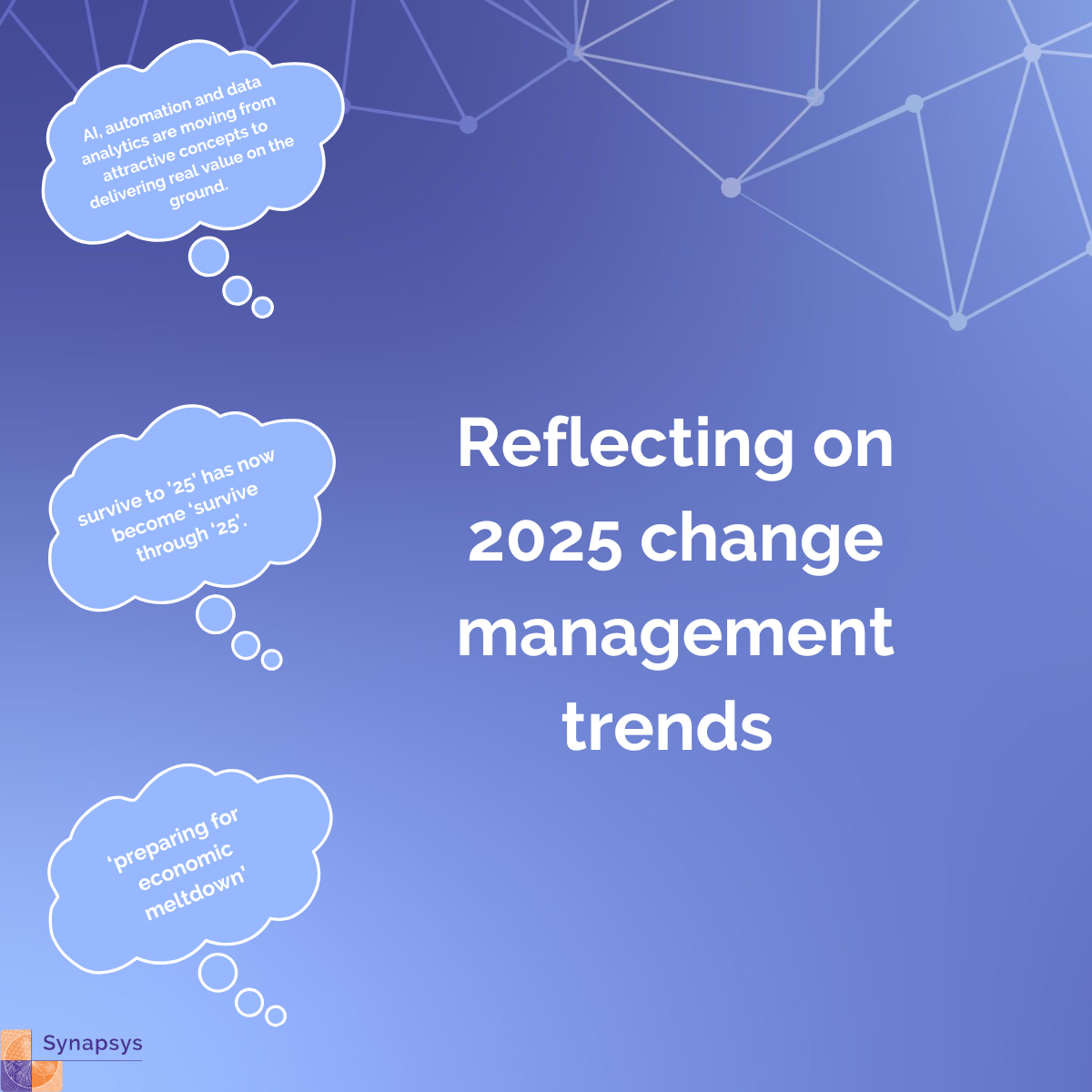
Change Management Insight listed its top 10 change management trends for 2024 here https://changemanagementinsight.com/change-management-trends-2024/ As we look forward in 2025 in Aotearoa New Zealand, there is really a small subset of these that we are hearing most about.
AI, automation and data analytics are moving from attractive concepts to delivering real value on the ground. One of the key drivers for this is recognition that embedding learning on and in the job is key to rapid, meaningful capability development and behavioural change. This in turn presupposes that effort is focused on immediate, real business challenges and opportunities. But how do you sift out what really matters? AI and data analytics are key to understanding where productivity and performance gains can best be made. Examples include
- Analysis of support requests identifying hot spots where staff are spinning their wheels that can be addresses across the workforce
- AI and data analytics surfacing high-value training and development opportunities from learner-led activity.
Change Management Insight also noted ‘preparing for economic meltdown’ as a key trend. That’s a somewhat alarmist take, but global uncertainty, the constrained economic climate, and current government policies truncating activity flowing through to the economy are all impacting. The net result is a laser-like focus on efficiency and cost management. For many businesses, particularly SMEs, ‘survive to ’25’ has now become ‘survive through ‘25’.
Unfortunately, what this means is that trends such as incorporating sustainability in change initiatives, ethical considerations and even employee wellbeing are taking a back seat in the face of operational reality.
The sentiment is understandable. The risk is that these wider change drivers are at the heart of an engaged and productive workforce, whatever the efficiency gains gleaned from data insights. While employees might stay longer in unrewarding roles while the job market is tight, the fuse will be short when the economic climate changes. Organisations with longer term strategic visions for their workforces understand that they ignore these drivers at their peril.
